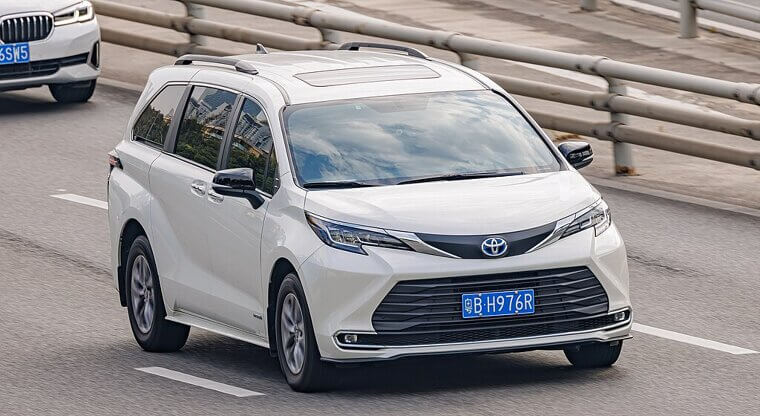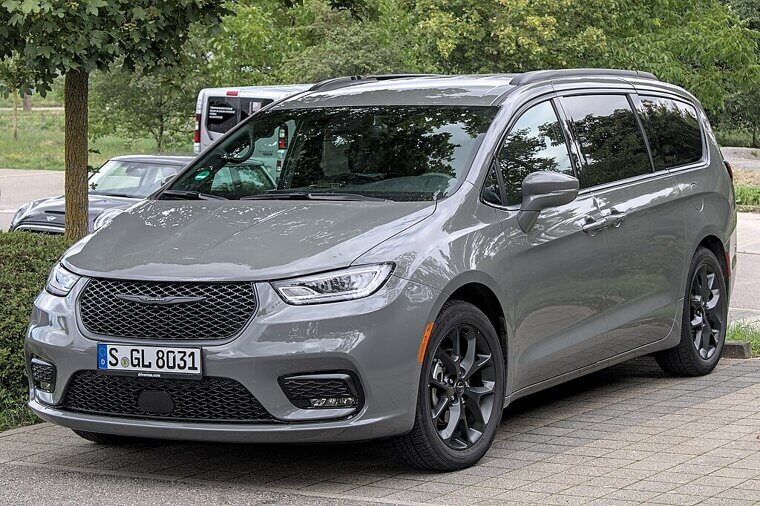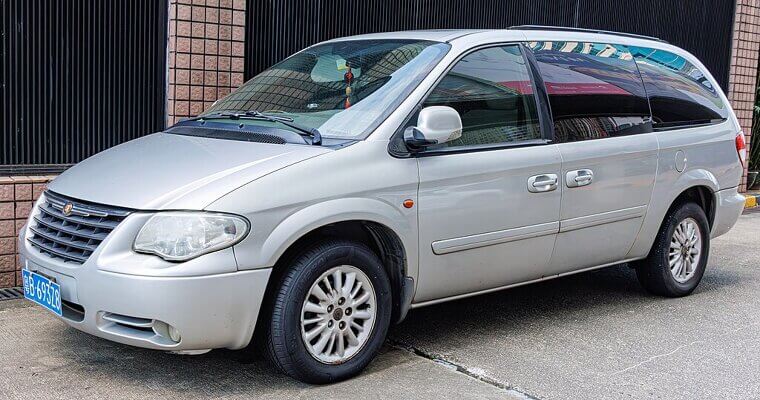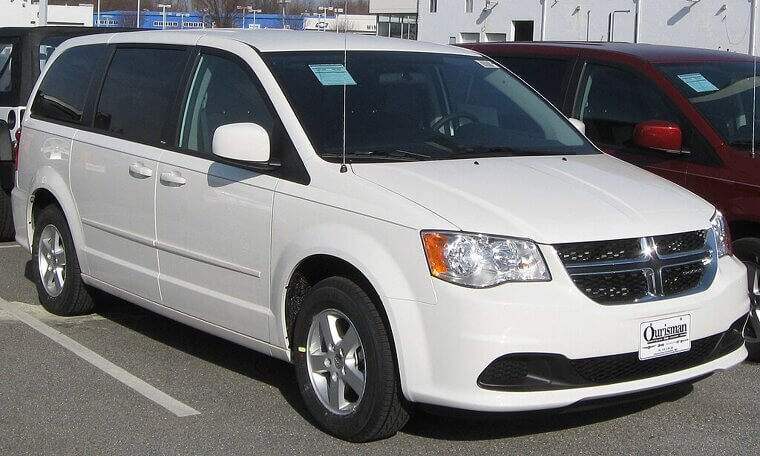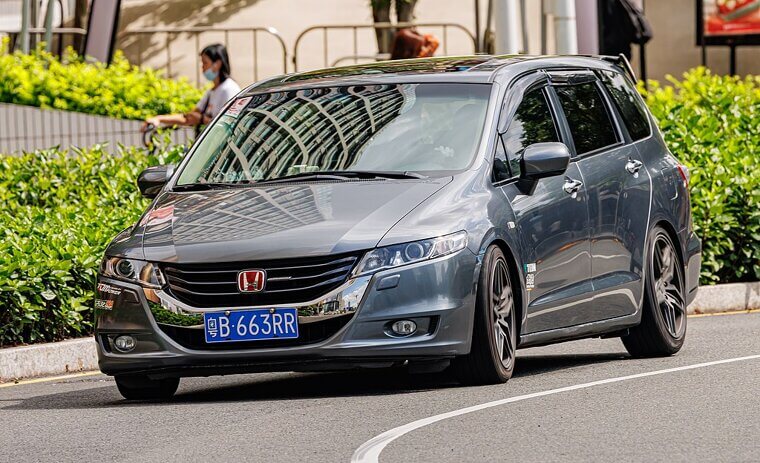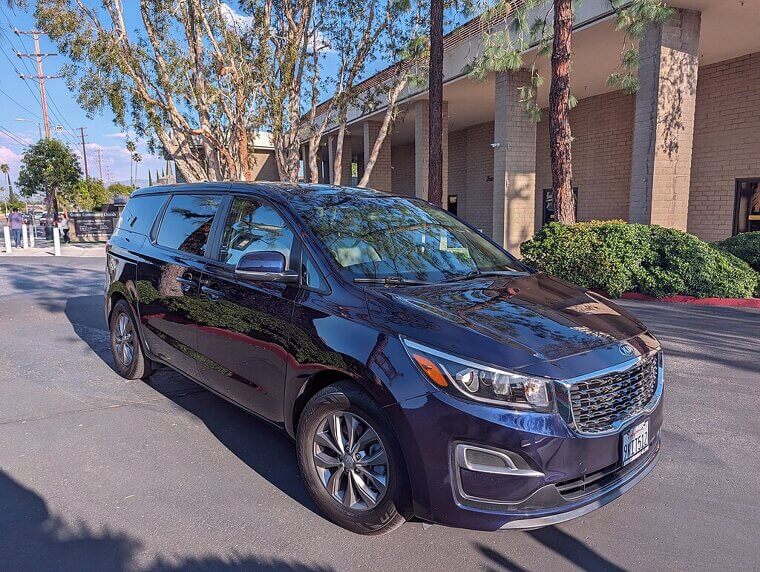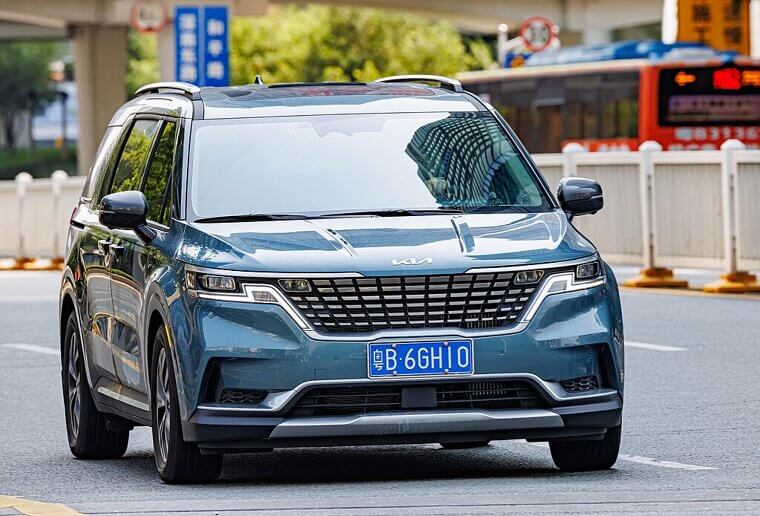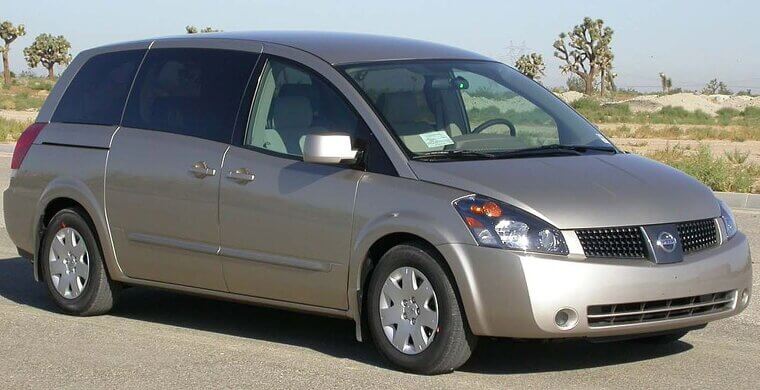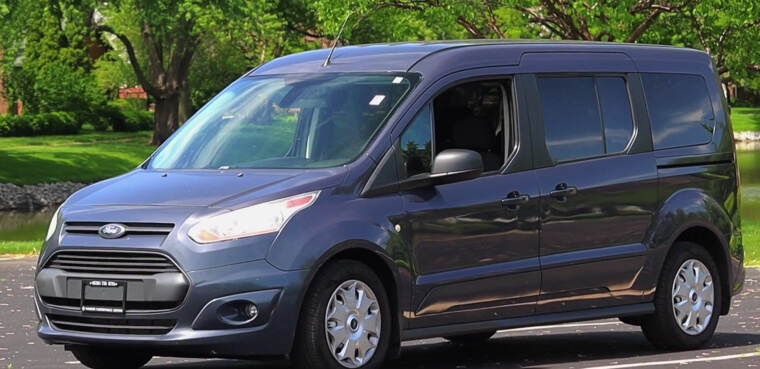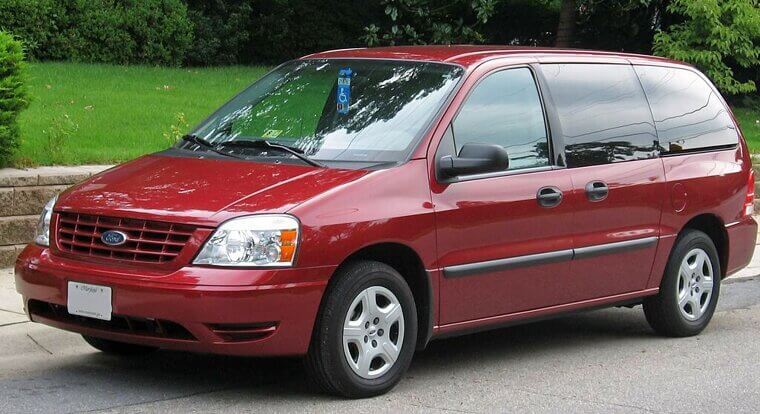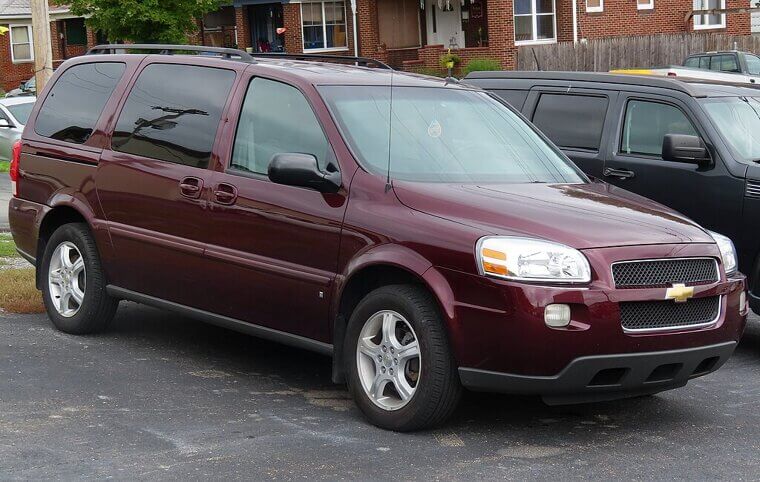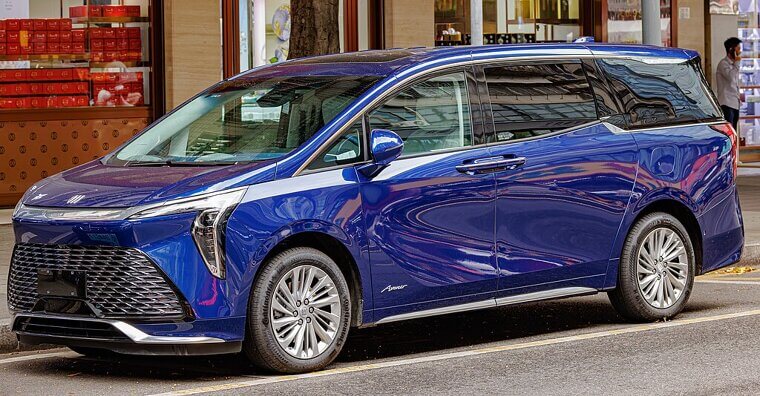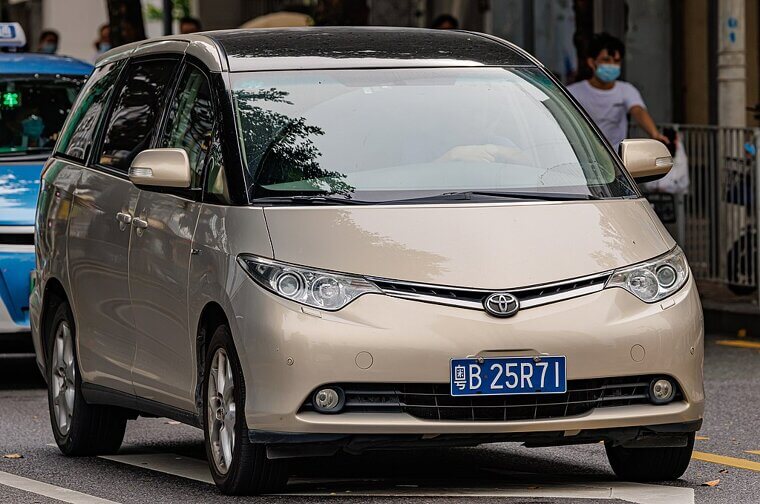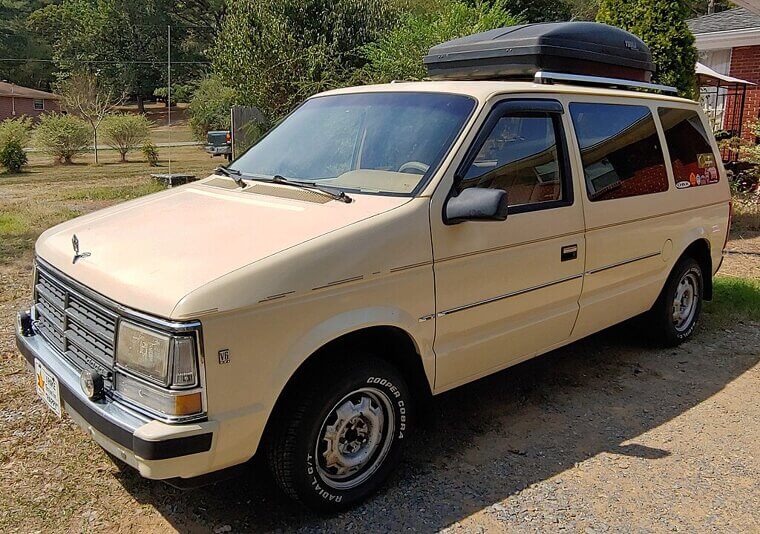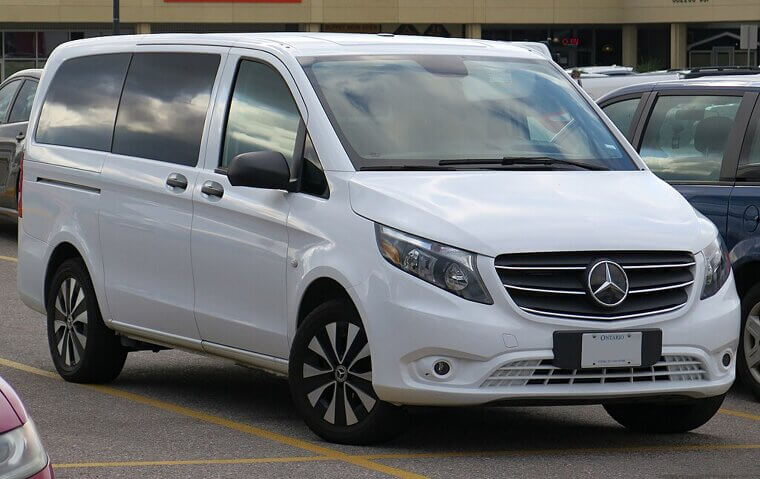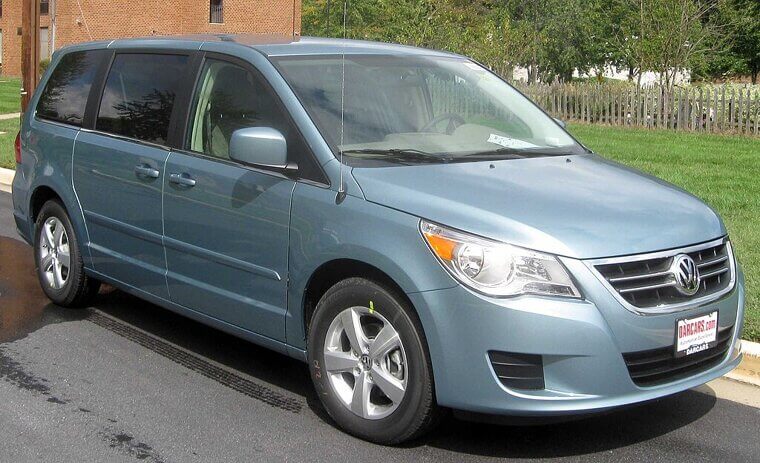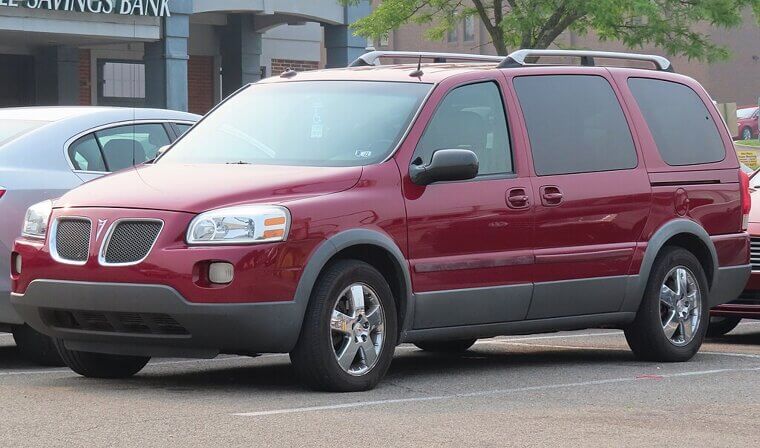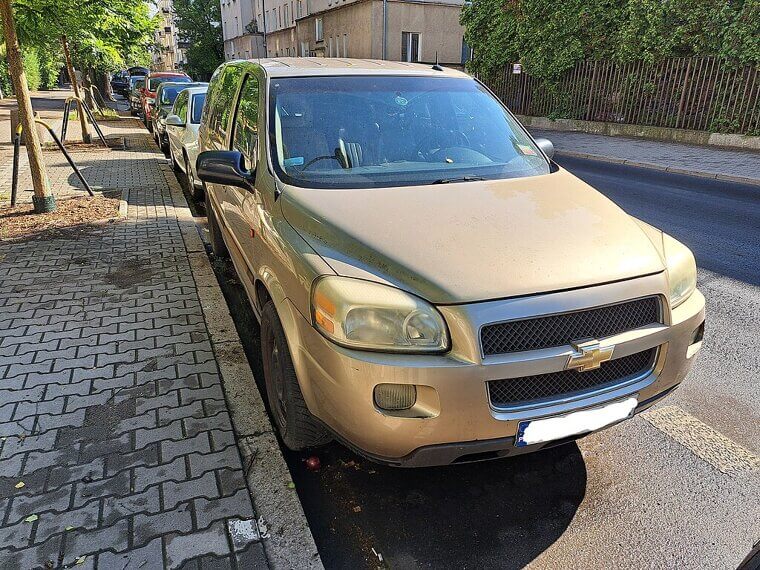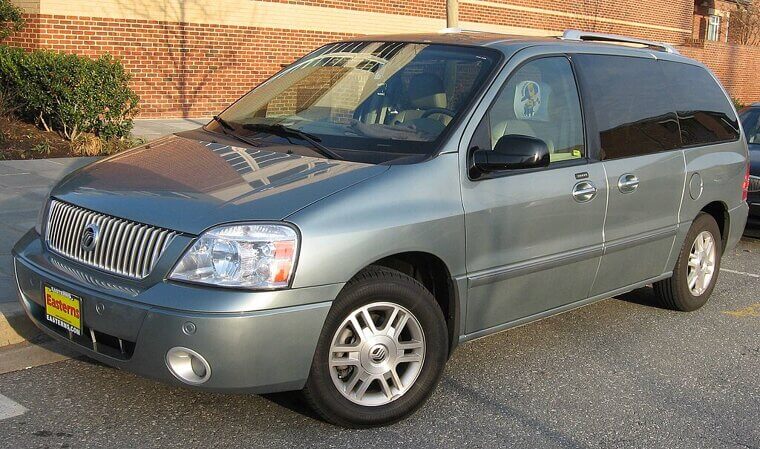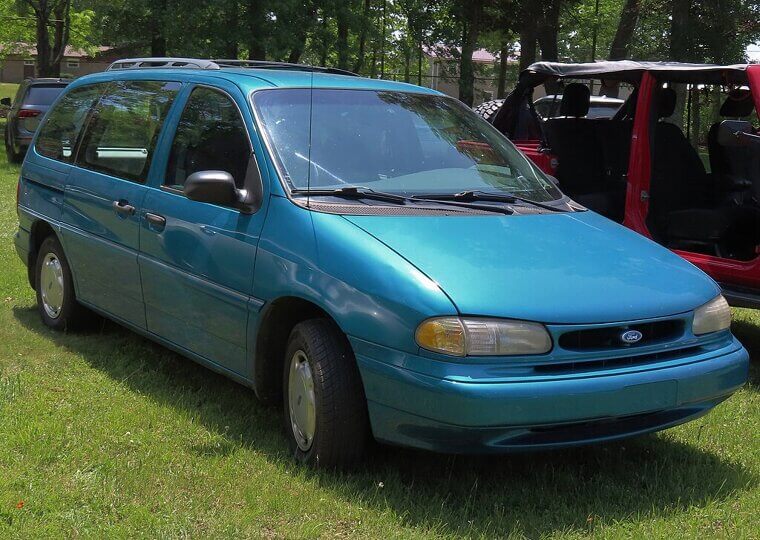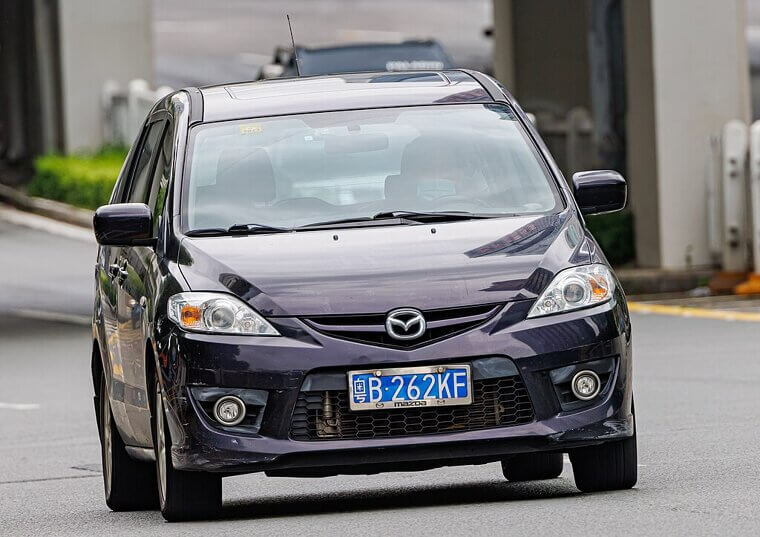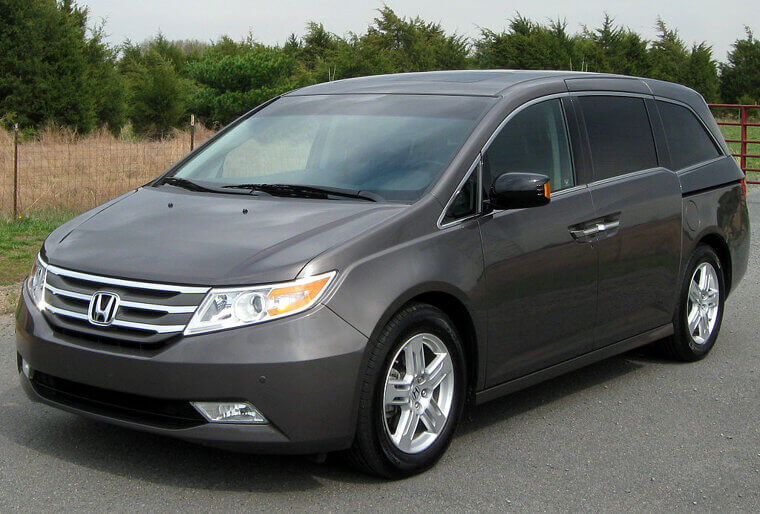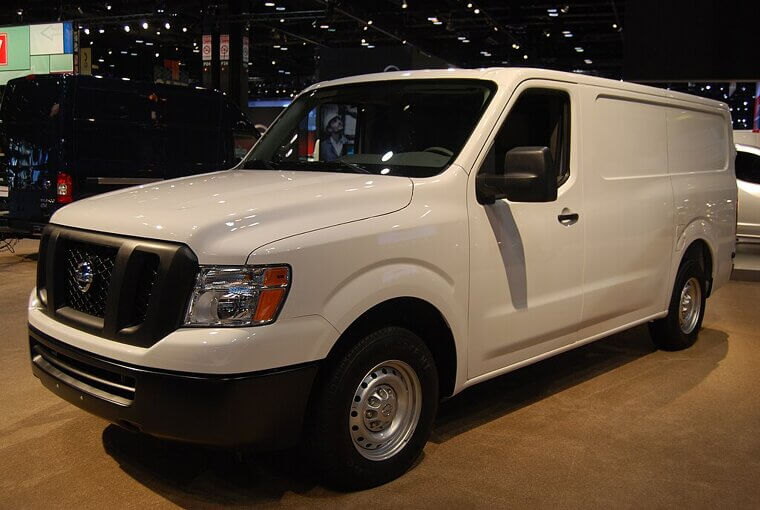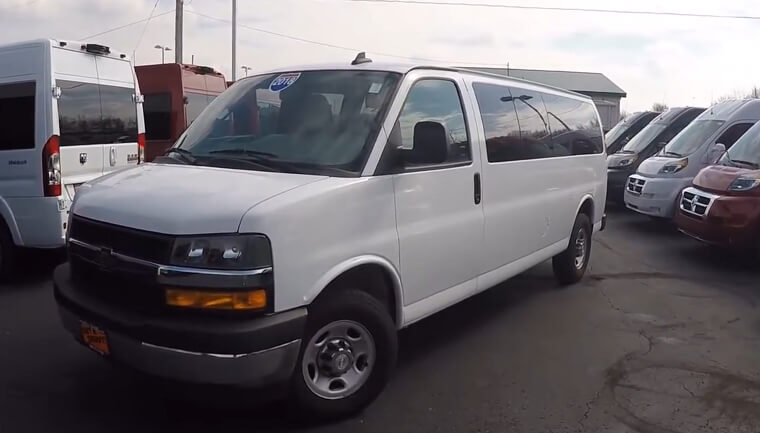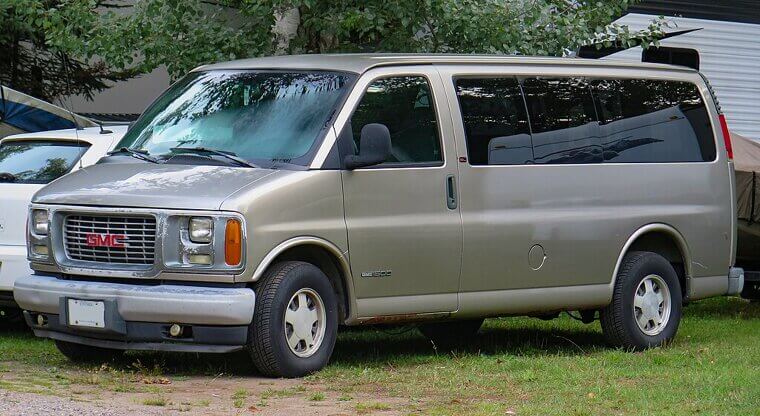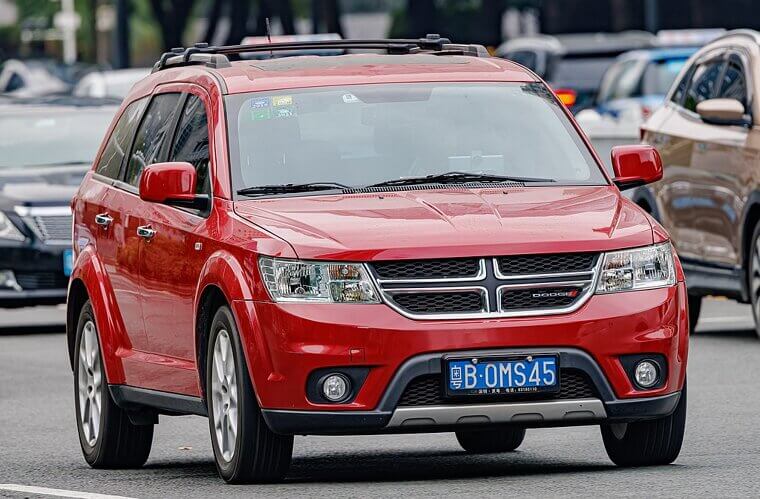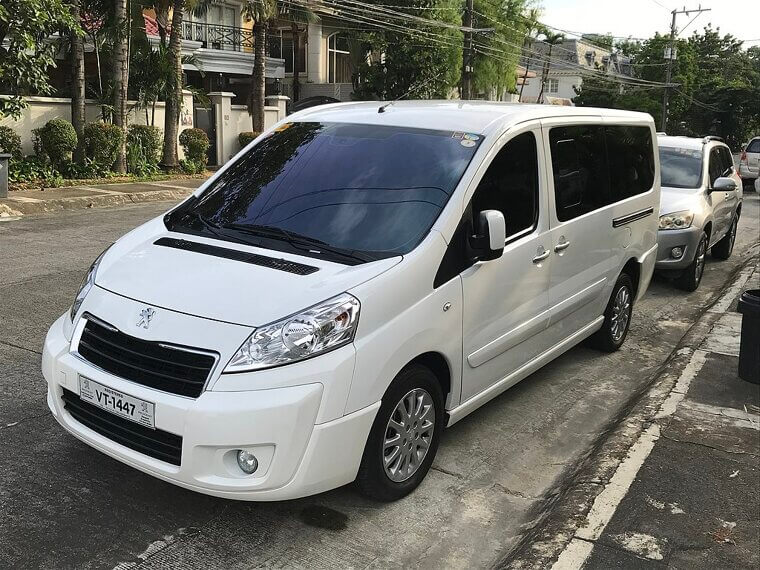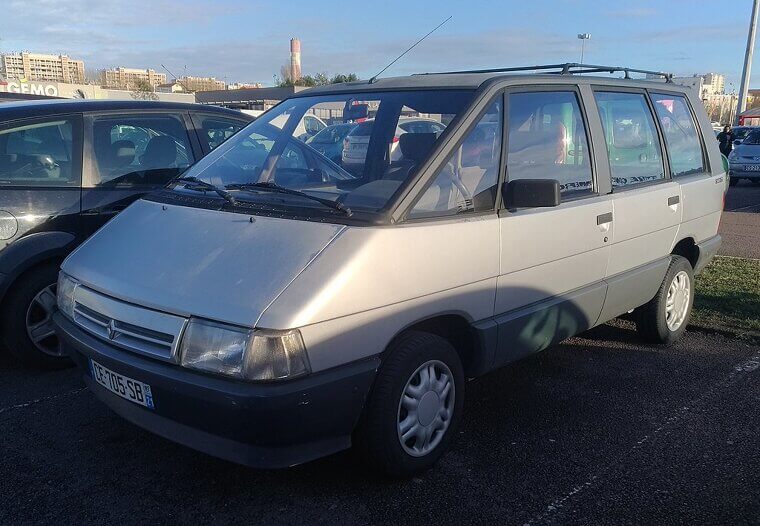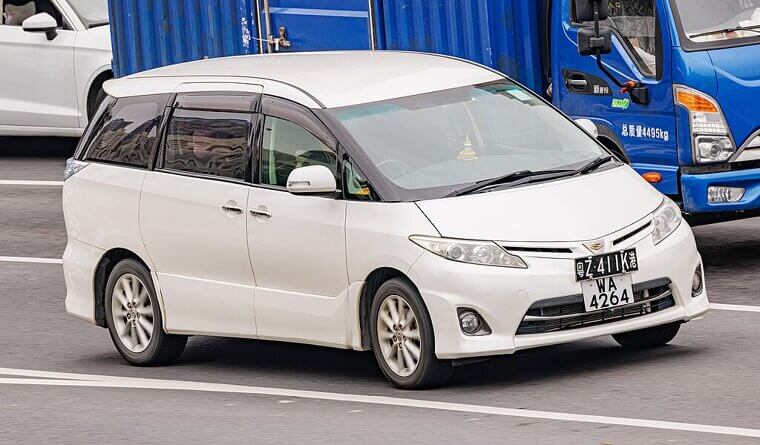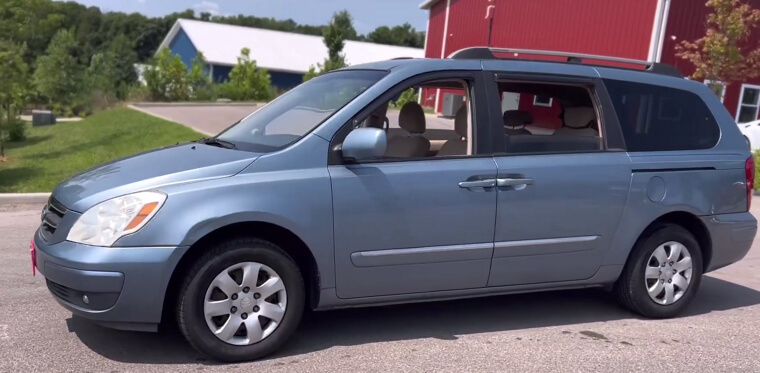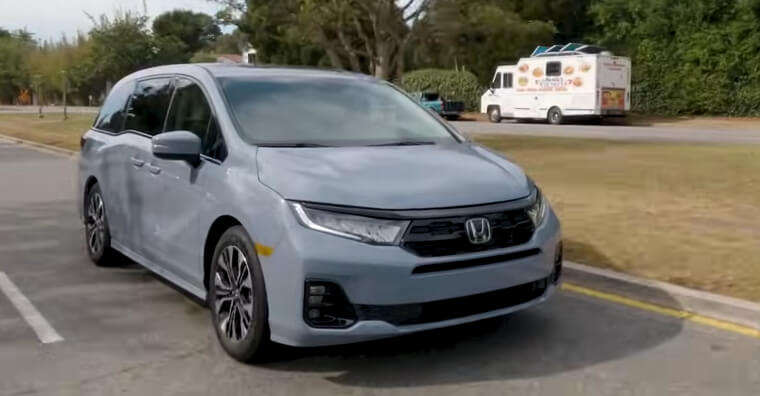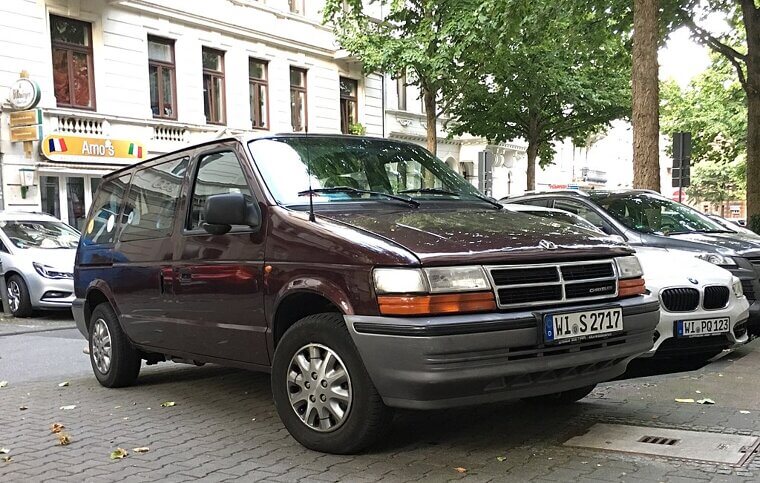Toyota Sienna (2011-2019 Models)
Toyota’s Sienna is practical perfection: AWD options, spacious seating, and the brand’s rock-solid reputation. Yet, even this stalwart minivan succumbs to depreciation. It’s the reliable family friend who occasionally forgets their wallet when the bill appears. Smart buyers know, value falls faster than a spilled sippy cup.
Chrysler Pacifica (2017-Present)
The Pacifica looks like a dream - sliding doors, tech galore, and cupholders for days. But beneath the surface, depreciation bites hard. Even well-equipped hybrids lose value surprisingly fast. It’s comfortable, practical, and stylish… just not when it comes time to sell. Family convenience rarely equals financial foresight.
Chrysler Town & Country (2008-2016)
Once Chrysler’s minivan crown jewel, the Town & Country now suffers a classic fate: rapid depreciation. Practicality and comfort can’t hold back the secondhand market, which treats these vans like yesterday’s leftovers. It’s spacious and full-featured, but it loses value almost as fast as spilled juice on the carpet.
Dodge Grand Caravan (2011-2020)
The Grand Caravan is the everyman minivan, reliable but painfully predictable. Affordable and accessible when new, it depreciates relentlessly because there’s always a newer, shinier model around. It’s dependable, easy to drive, and perfectly functional… but while it starts out fun, the feeling’s fleeting.
Honda Odyssey (2011-2017 Models)
The Odyssey’s reputation for reliability is appropriately legendary, but the resale market doesn’t give it the same applause. Despite a polished interior, clever storage, and family-approved tech, these vans lose value steadily. They’re excellent at their job, but not fetching a premium at trade-in time.
Kia Sedona (2015-2021)
The Sedona is competent, roomy, and surprisingly stylish for a minivan. Too bad the resale market doesn’t notice! Buyers drive past it like it’s a leftover casserole - functional, but hardly exciting. It’s great for shuttling kids and groceries, but less so for cashing in later.
Kia Carnival (2022-Present)
Kia’s Carnival is flashy and modern - a minivan with a hint of swagger. Too bad that flair doesn’t translate to secondhand value. Think of it as a party bus that throws its own depreciation party the moment it leaves the lot. Fun to own, painful to sell.
Nissan Quest (2011-2017)
The Quest aimed to blend comfort and tech, but resale buyers barely blink. It’s reliable and spacious, but its personality evaporates as quickly as dry spaghetti in water. It makes for a fine family hauler, just not a financial gem once it’s been owned a while.
Ford Transit Connect Passenger (2014-Present)
The Transit Connect can shuttle your family or your business, but depreciation loves it like a toddler loves juice boxes: relentlessly. Its quirky van-like shape is practical; however, the resale market prefers something slightly less… van-y. It’s functional, funny-looking, and fast-fading in value.
Ford Freestar (2004-2007)
The Freestar was Ford’s attempt at a modern minivan, but the resale market’s verdict was… “meh.” Functional but unremarkable, it loses value like a VHS tape in a Netflix world. Solid mechanics can’t save it from the financial truth: the market barely notices it exists.
Chevrolet Uplander (2005-2009)
The Uplander tried to charm families with style and features, but depreciation struck it like a thrown building block. It’s reliable enough for trips to soccer practice, but forgettable enough for the used market to treat it like an awkward relative at Thanksgiving. Buyers would just rather pass by unnoticed.
Buick GL8 (certain U. S. /China Import Years)
This rare U.S. import SUV/minivan hybrid is roomy and comfortable, but demand is low, and resale suffers accordingly. It’s the luxury minivan that few Americans remember exists simply because it didn’t make a huge impact. A nice ride with an unfortunate value trajectory.
Toyota Previa (last U. S. Years: 1997-1997)
The Previa is legendary for quirky style and boxy charm; however, it aged like milk in the sun for the U.S. market. Despite being rare its resale values plummet - buyers prefer practicality without the early-’90s fashion statement. A classic in hindsight, but a wallet-drainer at resale.
Dodge Caravan (older Models, Pre-2011)
Before Chrysler took over, the Caravan was the quintessential minivan. Now, it’s a financial cautionary tale: dependable, but its resale value evaporates into the air as if it never existed. It’s a family hero whose monetary value slowly fades into legend.
Mercedes-Benz Metris Passenger (2016-Present)
The Metris feels European-refined, but depreciation ignores sophistication. While it’s spacious, comfortable, and tech-forward, used buyers can sniff out the price drop faster than a toddler hunts down the candy stash. It’s a fancy and functional vehicle, but tragically it’s also financially fleeting.
Volkswagen Routan (2009-2014)
The Routan tried to combine German precision with minivan practicality, but the market wasn’t buying. It had space, comfort, and a decent interior, but depreciation still hit hard. Buyers admired it in passing, but resale values vanished faster than VW’s marketing hype.
Pontiac Montana (2005-2006)
The Montana offered families room and reliability; however, resale performance was another story. Comfortable and functional, it failed to inspire long-term market loyalty. Buyers often bypassed it for more recognizable names, leaving depreciation to do the heavy lifting. It was solid mechanically, yet financially forgettable.
Saturn Relay (2005-2007)
The Relay wanted to impress families, but it mostly impressed devaluation. Spacious and serviceable, it delivered reliability with a side of forgettability. Buyers might admire the seat count, but resale shows a firm commitment to financial disappointment. It quietly does its job, and quietly loses your money.
Mercury Monterey (2004-2007)
The Monterey had luxury pretensions and family ambitions, yet resale wasn’t convinced. Despite being comfortable, practical, and fairly competent, it still managed to slide down value charts like a minivan on an icy driveway. It’s classic Mercury math - stylish enough to earn a glance, forgettable enough to depress trade-in prices.
Ford Windstar (2004-2003)
Reliable and roomy, the Windstar seems perfect… until the resale market enters the conversation. Buyers respect its utility, but “perfect for minivan duty” isn’t enough to hold value. It’s the minivan equivalent of a competent accountant: everyone likes it, nobody pays top dollar for it.
Mazda5 (2006-2015)
Mazda packed sporty flair into a compact minivan, yet resale shrugged. Handling, efficiency, and charm appealed to owners, but the used market mostly yawned. It’s fun and clever, just not financially clever. The Mazda5 proves that sometimes innovation is celebrated at first, then quietly ignored when it comes time to sell.
Honda Odyssey Touring (some Higher Trims)
Even the top-trim Odyssey can’t escape value loss! Packed with family-friendly tech and comfort, it still loses value like clockwork. Buyers love the features, but the secondhand market focuses on newness over niceties. It’s reliable, capable, and well-designed - just financially generous to the next owner, not the seller.
Nissan NV Passenger (2012-Present)
The NV Passenger is roomy, dependable, and practical; however, the market doesn’t care. It’s built for function, not flair, and depreciation punishes blandness more than anything else. Resale treats it like background scenery: perfectly adequate, quickly forgotten.
Chevrolet Express Passenger (older Versions)
The Express Passenger works hard, lasts long, and carries plenty - and yet its value plummets relentlessly. Buyers respect its durability but rarely reward it. It’s the financial equivalent of a polite nod: appreciated in the moment, quickly dismissed when it comes to money. This workhorse doesn’t keep its worth.
GMC Savana Passenger (older Versions)
The Savana Passenger is durable, functional, and as dependable as a minivan can be. Resale doesn’t see it that way, though. Buyers want excitement or prestige, not reliability alone. It’s a van that earns respect for its practicality, and laughs quietly as your bank account deflates over the years.
Dodge Journey (2009-2020)
The Journey tried to straddle SUV and minivan territory, but ended up lost in neither. Despite being affordable and spacious, buyers notice when innovation is missing. Resale values tumble, proving that being “fine” isn’t enough to hold long-term appeal. It’s a van that works hard and sells cheap.
Suzuki Landy (U. S. Import Models, Limited)
Rare in the U.S., the Landy looked intriguing but quickly faded in resale relevance. Its quirks charm owners briefly, yet buyers stick to familiar names. Space, reliability, and decent comfort can’t overcome obscurity. It’s a collector curiosity in some regions, a value trap in others.
Peugeot Expert Tepee (rare U. S. Imports)
The Expert Tepee arrived with European style and family practicality, but the U.S. market barely noticed. Low demand and limited parts availability hammer resale. Clever design and usable space can’t compensate when buyers hesitate to gamble on the unusual. Fun to drive, tough to sell.
Renault Espace (early 2000s, Limited U. S. )
Imported minivan elegance met depreciation reality; the Espace offered flair and comfort, even as resale figures fell flat. Rare, quirky, and efficient sums up this European gem that U.S. buyers ignored. It’s the perfect example of style not translating to value, a van both admired and financially punished.
Toyota Estima (rare U. S. Import)
The Estima dazzled with futuristic interiors, but rarity didn’t save its resale numbers. Buyers feared parts, service, and value unpredictability. Comfortable, quiet, and smooth, it nonetheless depreciates like a car the market never really got to know. Function meets obscurity, and value suffers.
Hyundai Entourage (2007-2009)
The Entourage aimed to impress with style and comfort. Resale proved less forgiving. Practical, reliable, and modern for its era, it still struggles to hold value. It’s a van for families who cared more about usability than future trade-in prices, and the market noticed.
Kia Carnival SX Limited (recent Trims)
Even the newest Carnival trims devalued faster than you’d expect for a fully-featured minivan. Roomy, well-equipped, and stylish, it still faces a market that prizes newness over niceties. Buyers enjoy the ride; sellers enjoy… slightly less. A reminder that even premium family vans aren’t immune.
Chrysler Voyager (2020-Present)
The new Voyager carries the minivan legacy, yet resale still bites. Modern tech, comfortable seating, and value-packed trims help new buyers, while punishing the used market. Affordable, practical, and family-approved, it still loses monetary appeal with admirable efficiency.

